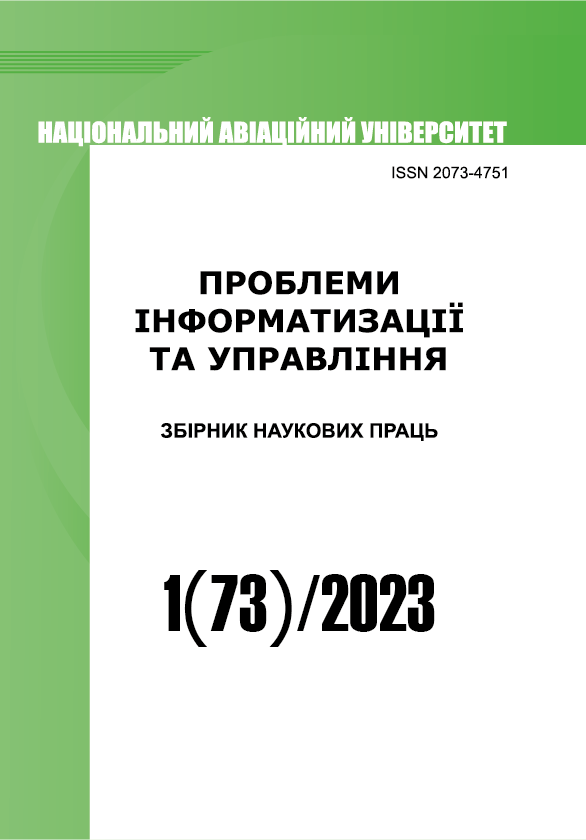Integration of measuring channels of three-phase digital electricity meter
DOI:
https://doi.org/10.18372/2073-4751.73.17641Keywords:
measurement uncertainty, electricity meter, measuring channel, current transformer, accuracy, information and measurement system, characteristicAbstract
The object of this research is the process of electricity measurement with a digital three-phase electric energy meter. The goal is to increase the accuracy of electricity measurement with an electric energy meter connected with a current transformer by software integration of measurement channels. The proposed method involves using the space vector method for electricity measurement. It is proposed to measure the instantaneous values of currents and voltages of a three-phase electrical network using electromagnetic measuring current transformers, performing analog-to-digital conversion to obtain digital readings of signals, to calculate complex values of space vectors, to find the total power as a product of the voltage vector by the conjugate current vector. The real part of the total power corresponds to the active power, the imaginary part to the reactive power. By integrating power over time, the corresponding energy values are calculated. The advantages of this approach are the absence of the need to calculate the root mean square values of currents and voltages, which is one of the main sources of measurement uncertainty. Also, the increase in accuracy is achieved due to the software combination of calculations for three measuring channels. The application of the proposed approach makes it possible to reduce the uncertainty of electricity measurement, which increases the accuracy of calculations for consumed electricity.
References
Clean energy for all Europeans. – Luxembourg: Publications Office of the European Union, 2019. – 24 p. URL: http://surl.li/gkkur.
Vitiello S., Andreadou N., Ardelean M., Fulli G. Smart Metering Roll-Out in Europe: Where Do We Stand? Cost Benefit Analyses in the Clean Energy Package and Research Trends in the Green Deal. Energies. – 2022. – Vol. 15(7).
Despa D., Kurniawan A., Komarudin M., Mardiana, Nama G.F. Smart monitoring of electrical quantities based on single board computer BCM2835. 2015 2nd International Conference on Information Technology, Computer, and Electrical Engineering (ICITACEE), Semarang, Indonesia, 2015. – P. 315-320.
Li G., Jiang Zh., Yu X., Cen Zh., Yan J. Study on electronic energy meter failure power calculation based on metering automation systems. 2018 7th International Conference on Power Science and Engineering (ICPSE 2018). – 2019. – Vol. 260. – 4 p.
Wang T., Wang J., Xhi X., Zhang R. Metering error quantification under voltage and current waveform distortion. The 2017 2nd International Seminar on Advances in Materials Science and Engineering, 28-30 July 2017, Singapore. – 2017. – Vol. 231. – 8 p.
Shujiang G, et al. Analysis and suggestions on measurement error of electric energy meter. Advances in Engineering Research. – 2018. – Vol 152. – P. 388-390.
Yang M., et. al. Research of the instrument and scheme on measuring the interaction among electric energy. Metrology of multi-user electric energy. Measurement: Sensors. – 2021. – Vol. 18.
Cetina R.Q., Roscoe A.J., Wright P.S. A review of electrical metering accuracy standards in the context of dynamic power quality conditions of the grid. 52nd International Universities Power Engineering Conference (UPEC), Heraklion, Greece. – 2017. – P. 1-5.
Zhang Z., et. al. Research on estimating method for the smart electric energy meter's error based on parameter degradation model. 2018 3rd Asia Conference on Power and Electrical Engineering (ACPEE 2018) 22-24 March 2018, Kitakyushu, Japan. IOP Conference Series: Materials Science and Engineering. – 2018. – Vol. 366.
Жемеров Г.Г., Тугай Д.В. Енергоефективність систем електропостачання з напівпровідниковими перетворювачами електроенергії: монографія. Харків. нац. ун-т міськ. госп-ва ім. О.М. Бекетова. – Харків, 2018. – 272 с.
Li Z., et. al. A bidirectional electric energy metering algorithm based on the fundamental component extraction and alternating current sampling. 2018 2nd IEEE Advanced Information Management, Communicates, Electronic and Automation Control Conf., Xi'an, China. – 2018. – P. 1272-1279.
Bellan D., Superti-Furga G. Space-vector state-equation analysis of three-phase transients. Journal of Electrical Systems. – 2018. – Vol. 14(1). – P. 188-198.
Aller J.M., Bueno A., Paga T. Power system analysis using space-vector transformation. IEEE Transactions on Power Systems. – 2002. – Vol. 17(4). – P. 957-965.
Downloads
Published
How to Cite
Issue
Section
License
Автори, які публікуються у цьому журналі, погоджуються з наступними умовами:- Автори залишають за собою право на авторство своєї роботи та передають журналу право першої публікації цієї роботи на умовах ліцензії Creative Commons Attribution License, котра дозволяє іншим особам вільно розповсюджувати опубліковану роботу з обов'язковим посиланням на авторів оригінальної роботи та першу публікацію роботи у цьому журналі.
- Автори мають право укладати самостійні додаткові угоди щодо неексклюзивного розповсюдження роботи у тому вигляді, в якому вона була опублікована цим журналом (наприклад, розміщувати роботу в електронному сховищі установи або публікувати у складі монографії), за умови збереження посилання на першу публікацію роботи у цьому журналі.
- Політика журналу дозволяє і заохочує розміщення авторами в мережі Інтернет (наприклад, у сховищах установ або на особистих веб-сайтах) рукопису роботи, як до подання цього рукопису до редакції, так і під час його редакційного опрацювання, оскільки це сприяє виникненню продуктивної наукової дискусії та позитивно позначається на оперативності та динаміці цитування опублікованої роботи (див. The Effect of Open Access).

